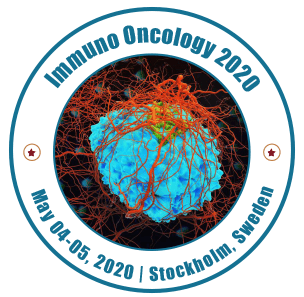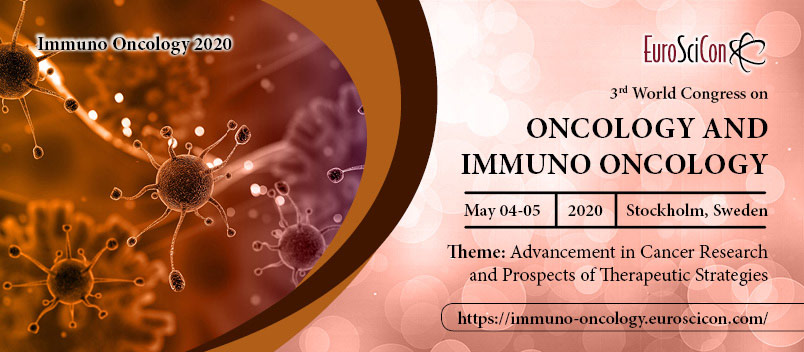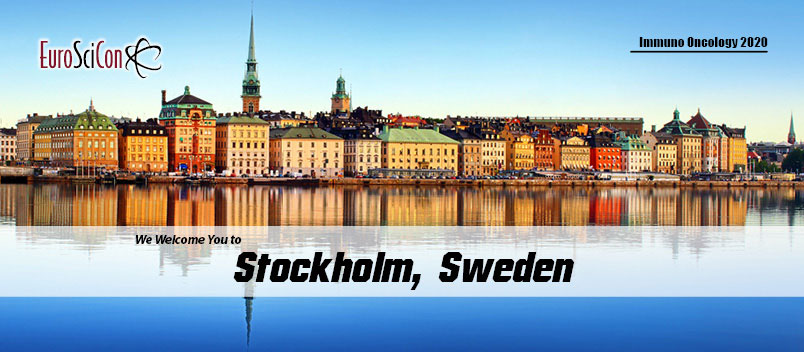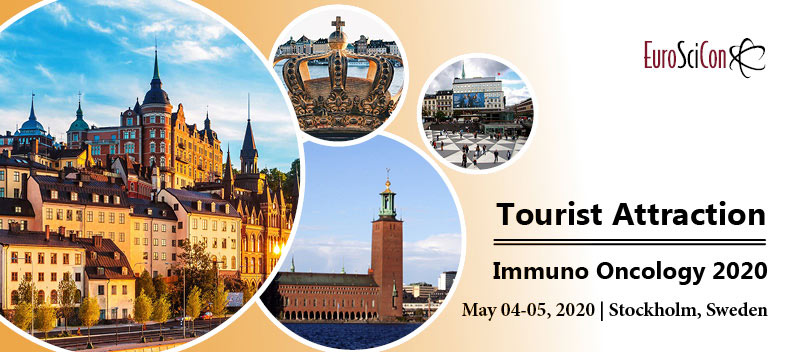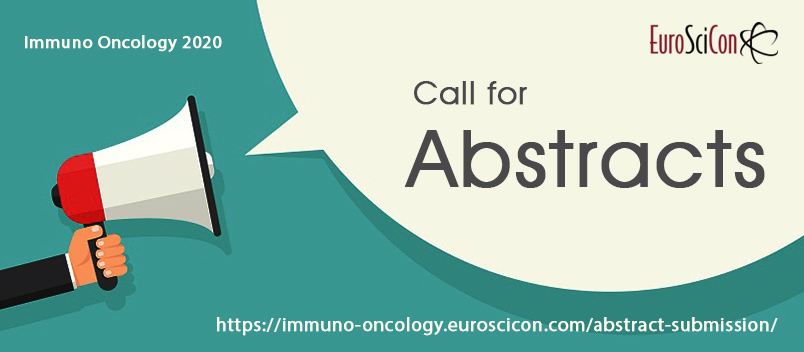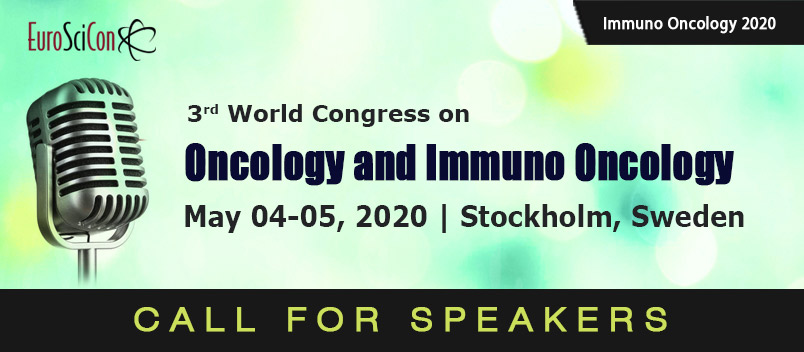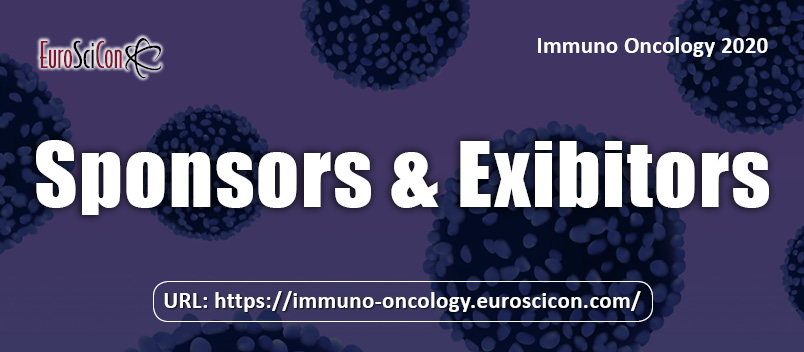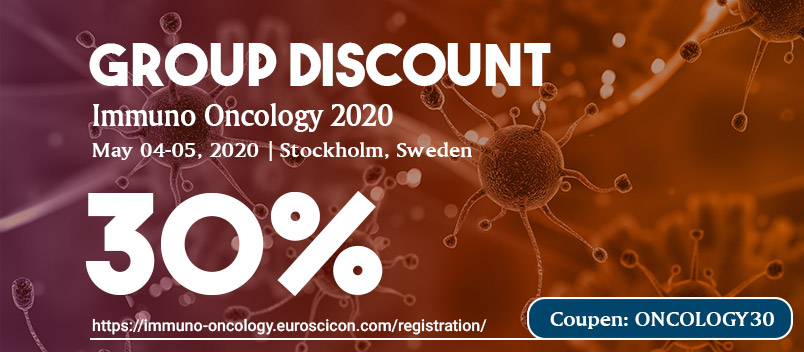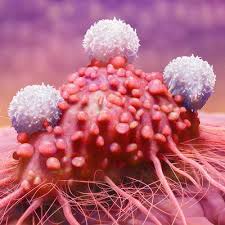immuno oncology 2020
About Conference
ABOUT CONFERENCE
The EuroSciCon welcomes you to attend the Immuno Oncology 2020 focus on Current Advancements and its Applications in Oncology & Immuno Oncology from May 04-05, 2020 in Stockhom, Sweden. The theme of this year’s meeting is “Advancement in Cancer Research and Prospects of Therapeutic Strategies"which will provide an international platform for discussion of present and future challenges in Cancer, Cancer Treatment, Immuno Oncology education, continuing education and expertise meeting. World-leading health Oncologists, Immunologists, clinicians, educators and researchers will present cutting-edge and practical clinical techniques based upon widely accepted evidence and will introduce new and emerging research.
What’s New
Immuno Oncology 2020 includes international attendee workshops, lectures and symposia, including a designated registration area, a refreshment break and gala lunch. Oncologists and Immunologists can join the EuroSciCon as an international member to receive discounts on registration. So come and join leading experts and allied professionals from May 04-05, 2020 in Stockholm, Sweden to keep up with the rapidly accelerating pace of change that is already having an impact on the field of Cancer & Immuno Oncology and will continue to in the future.
The scientific program includes Keynote & Plenary talks, Video Presentations, Poster Presentations and E-Posters. Furthermore, oral communications of (post)doctoral junior scientists will be considered. It is the goal of the organizers to make this meeting an event of scientific excellence, attractive to both industrial and academic scientists in Oncology & Immuno Oncology and it advancements.
EuroSciCon is the longest running independent life science events company with a predominantly academic client base. Our multi-professional and multi-speciality approach creates a unique experience that cannot be found with a specialist society or commercially.
Euroscicon are corporate members of the following organisations
Royal Society of Biology
IBMS
British Society for Immunology
Opportunities for Conference Attendees
For Researchers &Faculty:
Speaker Presentations
Poster Display
Symposium hosting
Workshop organizing
For Universities, Associations & Societies:
Association Partnering
Collaboration proposals
Academic Partnering
Group Participation
For Students & Research Scholars:
Poster Competition (Winner will get Best Poster Award)
Young Researcher Forum (YRF Award to the best presenter)
Student Attendee
Group registrations
For Business Delegates:
Speaker Presentations
Symposium hosting
Book Launch event
Networking opportunities
Audience participation
For Companies:
Exhibitor and Vendor booths
Sponsorships opportunities
Product launch
Workshop organizing
Scientific Partnering
Marketing and Networking with clients
Euroscicon organizes International Nutrition Meetings annually across Europe, Austria, Ireland, Germany, France, Liechtenstein, Lithuania, Finland, Luxembourg, Hungary, Italy, Norway, Poland, Denmark, Macedonia, Greece, Portugal, Romania, Czech Republic, Switzerland, United Kingdom, Belgium, Scotland, Latvia, Ukraine, Sweden, Denmark, Spain, Netherlands Russia, Bulgaria, France, with solitary subject of quickening logical revelations.
Topics:
Tumors
Brain Tumors
Tumor Immunology
Tumor immunotherapy research
Cancer Immunology & Immunotherapy
Types of cancer
Cancer Research & Cancer vaccines
Antibody Therapy of Cancer
Combining Cancer Immunotherapies
Immune checkpoint inhibitors
Cancer clinical trials
Radiology and Imaging in Cancer
Cancer Prognosis & Diagnosis
Cancer micro and immuno environment
Stem Cell Therapy
Tumor markers and drug targeting
Tumor biology
Cancer Pharmacology
Cancer biomarkers
Cancer Genomics and Metabolomics
Cancer & HIV
Immuno-Oncology studies
Novel Approaches in Cancer & Tumor
Session/Tracks
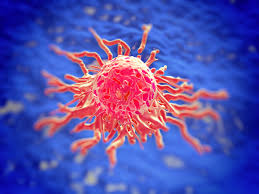
Oncology is a branch of medication which deals with treatment of tumors. A medically skilled individual who practices oncology is an oncologist. The responsibility of an oncologist is to diagnose, educate and treat patients affected with cancer. The three major areas under the discipline of medical specialty are Surgical, Medical and Radiation. Medical Oncologists are skillful in carrying out treatments which use therapy medication to kill cancer cells and condense the dimensions of tumors. Surgical Oncologists specialize on victimisation surgery to eradicate cancerous tumours and infrequently a margin of healthy tissue encompassing the tumor. Radiation Oncologists are knowledgeable in treating cancer with radiotherapy, that kill cancer cells victimisation numerous radiation machines. The opposite styles of oncologists embrace gynaecological Oncologists, paediatric oncologists and hematologists. Gynaecological Oncologists specialise in treating ladies with cancers like female internal reproductive organ or cervical cancer. Paediatric Oncologists young ones affected with cancer sometimes even below the age of eighteen. A haematologist medical specialist could also be a doctor who treats blood cancer like malignant neoplastic disease.
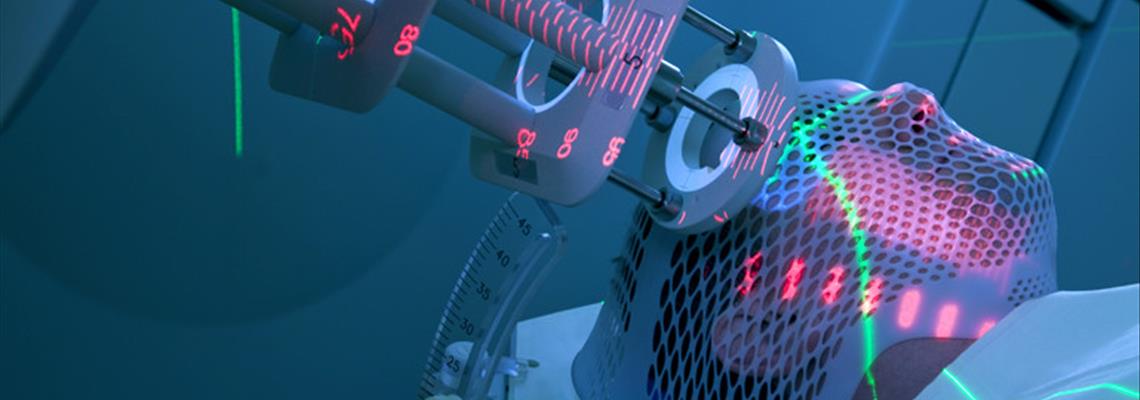
Clinical medical specialty enfolds the non-surgical side of medical specialty. 85th of all clinical oncologists treat patients with a balance of therapy and action therapy. Clinical oncologists are concerned with the treatment of all kinds of cancer. They work intently in massive multidisciplinary groups that specialize in the treatment of cancer poignant components of the body or systems. They treat patients and manage their cancer throughout the span of illness. This specialty offers the chance of developing clinical and scientific skills with nice potential for educational and clinical analysis. Technologies within the field of clinical oncology square measure up promptly. For instance, some tumor’s will be treated with extremely subtle exactitude external beam radiation, like nucleon beam therapy. Some patients will be cured, except for others the stress is on effective palliative care and up quality of life.
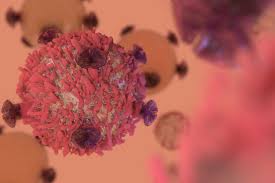
The molecular classification of Tumor is actually arrangement analysis disguised as classification. In a typical gene expression array study, the researcher will look at a cluster of tumors of a specific type. Cluster analysis of the gene expression array values will help discrete the tumors into groups with common expression patterns. Some of these groupings will prove to have a detailed biologic feature (e.g. increased tendency to metastasize, higher response to a chemotherapeutic agent, lengthened existence). Cancers are not just masses of malignant cells but complex ‘rogue’ organs, to which many other cells are recruited and can be degraded by the transformed cells. Interactions between malignant and non-transformed cells create the Tumor microenvironment (TME).
Cancer is the name given to a collection of related diseases. Cancer can start almost anywhere in the human body, which is made up of trillions of cells. In all types of cancer, some of the body’s cells begin to divide without stopping and spread into surrounding tissues. When cancer develops, however, this orderly process breaks down. As cells become more and more abnormal, old or damaged cells survive when they should die, and new cells form when they are not needed. These extra cells can divide without stopping and may form growths called tumors. There are more than 100 types of cancer. Types of cancer are usually named for the organs or tissues where the cancers form. For example, lung cancer starts in cells of the lung, and brain cancer starts in cells of the brain. Cancers also may be described by the type of cell that formed them, such as an epithelial cell or a squamous cell.
Cancer Research & Cancer vaccines
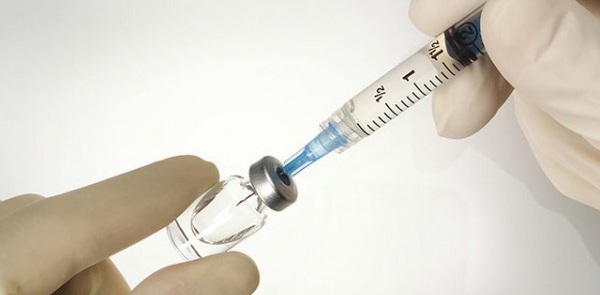
The goal of the Cancer Research Program is to make significant improvements in the prevention, early detection, diagnosis and treatment of cancer. It will continue to translate basic research findings into clinical applications together with strategic partners, with the National Centre for Tumor Diseases (NCT) and the nationally active German Consortium for Translational Cancer Research (DKTK) playing key roles. Most of us know about vaccines given to healthy people to help prevent infections, such as measles and chicken pox. These vaccines use weakened or killed germs like viruses or bacteria to start an immune response in the body. Getting the immune system ready to defend against these germs helps keep people from getting infections. Most cancer vaccines work the same way, but they make the person’s immune system attack cancer cells.
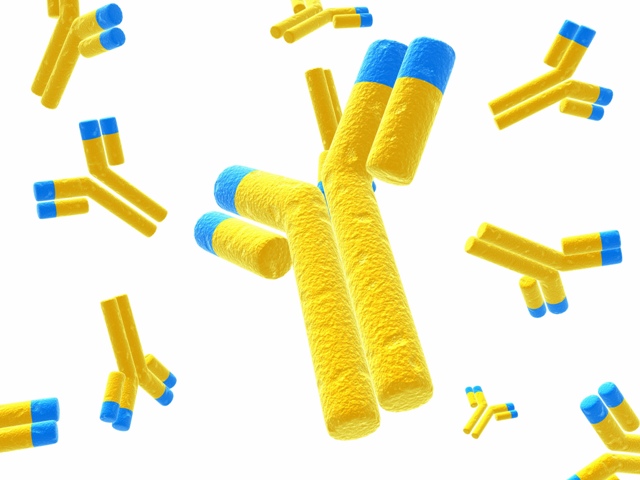
Antibody marks the cancer cell and makes it easier for the immune system to find. The monoclonal antibody drug rituximab (Rituxan) attaches to a specific protein (CD20) found only on B cells, one type of white blood cell. Certain types of lymphomas arise from these same B cells. Monoclonal antibodies can also function by attenuating hyperactive growth signals neo angiogenesis. A monoclonal antibody can be conjugated to a radioactive particle that will ensure directed delivery to the cancer cell and slow and long release of the radiation, hence maximizing chances of positive outcome and minimizing non-specific damaging exposure to radiation.
Combining Cancer Immunotherapies

Targeted therapies act by blocking essential biochemical pathways or mutant proteins that are required for tumor cell growth and survival. These drugs can arrest tumor progression and induce striking regressions in molecularly defined subsets of patients. Indeed, the first small molecule targeted agent, the BCR-ABL kinase inhibitor imatinib, rapidly induced complete cytogenetic responses in 76% of chronic myelogenous leukemia patients. Further research into the underlying genetic pathways driving tumor proliferation uncovered additional oncoproteins that are critical for tumor maintenance, such as the epidermal growth factor receptor (EGFR), BRAF, KIT, HER (also known as neu and ERBB) and anaplastic lymphoma kinase (ALK). Similar to imatinib, small molecule inhibitors of these kinases have effectuated impressive tumor responses in selected patients, although regressions are commonly followed by the development of progressive disease due to the emergence of drug-resistant variants. Resistance usually involves secondary mutations within the targeted protein or compensatory changes within the targeted pathway that bypass the drug-mediated inhibition. Accordingly, targeted therapies may elicit dramatic tumor regressions, but persistence is generally short-lived, limiting the overall clinical benefit.
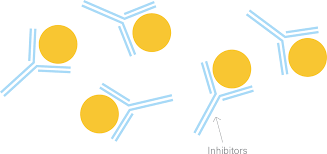
Immunology-based therapy is rapidly developing into an effective treatment option for a surprising range of cancers. We have learned over the last decade that powerful immunologic effector cells may be blocked by inhibitory regulatory pathways controlled by specific molecules often called "immune checkpoints." The development of a new therapeutic class of drugs that inhibit these inhibitory pathways has recently emerged as a potent strategy in oncology. Three sets of agents have emerged in clinical trials exploiting this strategy. These agents are antibody-based therapies targeting cytotoxic T-lymphocyte antigen 4 (CTLA4), programmed cell death 1 (PD-1), and programmed cell death ligand 1 (PD-L1). These inhibitors of immune inhibition have demonstrated extensive activity as single agents and in combinations. Clinical responses have been seen in melanoma, renal cell carcinoma, small cell lung cancer, and several other tumor types.
Radiology and Imaging in Cancer
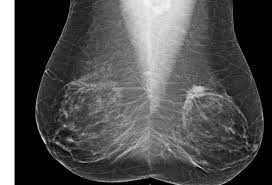
Radiology represents a branch of medicine that deals with radiant energy in the diagnosis and treatment of disease. An imaging test is a way to let doctors see what’s going on inside your body. These tests send forms of energy (like x-rays, sound waves, radioactive particles, or magnetic fields) through your body. Your body tissues change the energy patterns to make an image or picture. These pictures show how your insides look and work so that health care providers can see changes that may be caused by diseases like cancer.
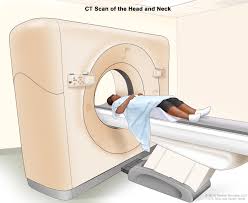
Prognosis of any disease means the estimate of the likely course and outcome of the disease. Prognosis of cancers usually means the estimate of success with treatment and chances of recovery. Doctors estimate prognosis by using statistics that researchers have collected over many years about people with the same type of cancer. Several types of statistics may be used to estimate prognosis. Some common numbers that are used to determine prognosis include cancer specific survival, relative survival, overall survival, disease-free survival etc. Cancer is nearly always diagnosed by an expert who has looked at cell or tissue samples under a microscope. In some cases, tests done on the cells’ proteins, DNA, and RNA can help tell doctors if there’s cancer. These test results are very important when choosing the best treatment options. Lumps that could be cancer might be found by imaging tests or felt as lumps during a physical exam, but they still must be sampled and looked at under a microscope to find out what they really are. Not all lumps are cancer. In fact, most tumors are not cancer.
Cancer Micro and Immuno environment
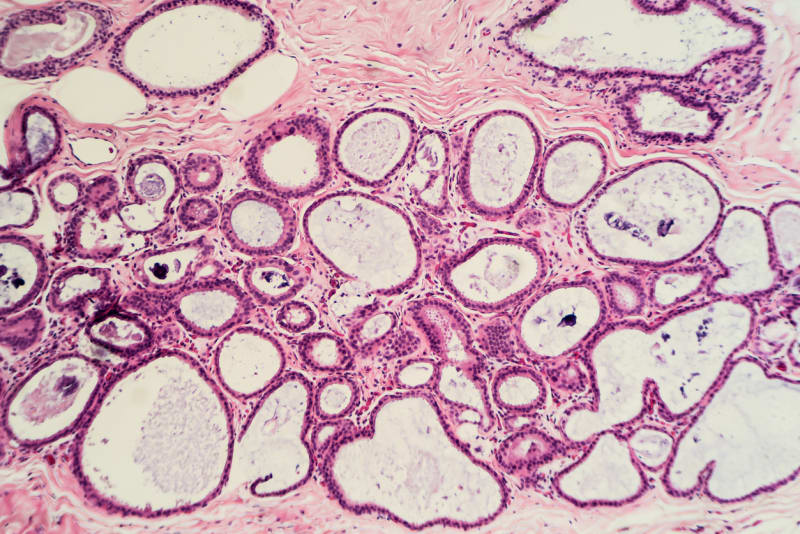
Interactions between malignant and non-transformed cells create the Tumor microenvironment (TME). The non-malignant cells of the TME have a dynamic and often tumor-promoting function at all stages of carcinogenesis .Intercellular communication is driven by a complex and dynamic network of cytokines, chemokine’s, growth factors, and inflammatory and matrix remodeling enzymes against a background of major perturbations to the physical and chemical properties of the tissue. The evolution, structure and activities of the cells in the TME have many parallels with the processes of wound healing and inflammation, but cells such as macrophages are also found in cancers that have no known association with chronic inflammatory conditions.
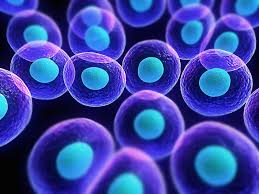
Stem-cell therapy is the use of stem cells to treat or prevent a disease or condition. Bone marrow transplant is the most widely used stem-cell therapy; Stem-cell therapy has become controversial following developments such as the ability of scientists to isolate and culture embryonic stem cells, to create stem cells using somatic cell nuclear transfer and their use of techniques to create induced pluripotent stem cells. For over 30 years, bone marrow has been used to treat cancer patients with conditions such as leukaemia and lymphoma; this is the only form of stem-cell therapy that is widely practiced. Stem cells are being studied for a number of reasons. The molecules and exosomes released from stem cells are also being studied in an effort to make medications
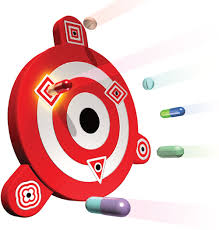
Tumor markers are substances that are produced by cancer or by other cells of the body in response to cancer or certain benign (noncancerous) conditions. Most tumor markers are made by normal cells as well as by cancer cells; however, they are produced at much higher levels in cancerous conditions. These substances can be found in the blood, urine, stool, tumor tissue, or other tissues or bodily fluids of some patients with cancer. Most tumor markers are proteins. Thus far, more than 20 different tumor markers have been characterized and are in clinical use. Some are associated with only one type of cancer, whereas others are associated with two or more cancer types. There is no “universal” tumor marker that can detect any type of cancer. Among various approaches to specifically target drug-loaded carrier systems to required pathological sites in the body, two seem to be most advanced – passive (EPR effect-mediated) targeting, based on the longevity of the pharmaceutical carrier in the blood and its accumulation in pathological sites with compromised vasculature, and active targeting, based on the attachment of specific ligands to the surface of pharmaceutical carriers to recognize and bind pathological cells.

Cancer Pharmacology focuses on developing experimental approaches to the clinical treatment of cancer through research that bridges the fields of molecular carcinogenesis, biochemical pharmacology, radiation biology, and clinical pharmacology. Cancer chemotherapy and pharmacology involves the pharmacological and oncological aspects of drugs at both an experimental and clinical level. New anticancer drugs require screening in terms of not only their pharmacokinetic and pharmacodynamic profiles but also single and combined drug administration modalities as well as the different phases of clinical trials. Importantly preclinical toxicology as well as drug interactions and indications for chemotherapy in cancer treatment are also investigated.
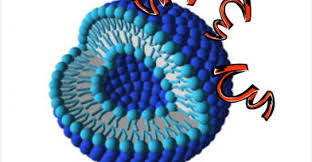
In cancer research and medicine, biomarkers are used in three primary ways:
To help diagnose conditions, as in the case of identifying early stage cancers (Diagnostic)
To forecast how aggressive a condition is, as in the case of determining a patient's ability to fare in the absence of treatment (Prognostic)
To predict how well a patient will respond to treatment (Predictive)
Cancer Genomics and Metabolomics
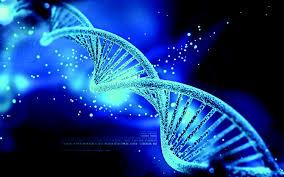
Cancer genomics is the study of the totality of DNA sequence and gene expression differences between tumor cells and normal host cells. It aims to understand the genetic basis of tumor cell proliferation and the evolution of the cancer genome under mutation and selection by the body environment, the immune system and therapeutic interventions. Metabolomics research is being used to discover diagnostic cancer biomarkers in the clinic, to better understand its complex heterogeneous nature, to discover pathways involved in cancer that could be used for new targets and to monitor metabolic biomarkers during therapeutic intervention. These metabolomics approaches may also provide clues to personalized cancer treatments by providing useful information to the clinician about the cancer patient’s response to medical interventions. The ultimate goal of most metabolomics cancer studies is to discover cancer-specific diagnostic, prognostic or predictive biomarkers for a patient.
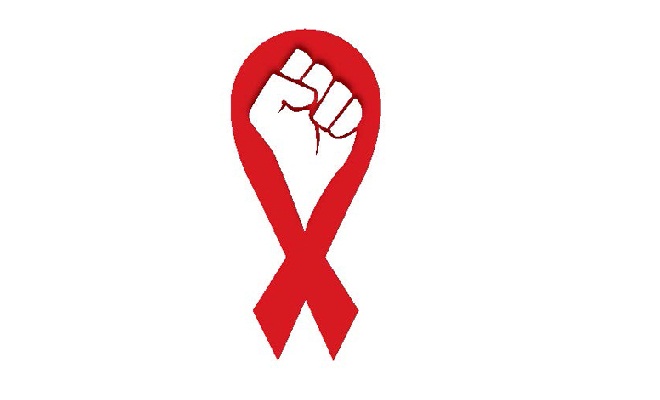
The immune system is the body’s natural defence system. It is a collection of organs, cells and special molecules that helps protect you from infections, cancer and other diseases. Immuno-oncology therapies activate our immune system, making it able to recognize cancer cells and destroy them. Breast cancer is one of the major cancer types for which new immune-based cancer treatments are currently in development. Lung cancer surgery carries risks, including bleeding and infection. Clinical trials are studies of experimental lung cancer treatments. Adult central nervous system tumor is a disease in which abnormal cells form in the tissues of the brain and/or spinal cord. A tumor that starts in another part of the body and spreads to the brain is called a metastatic brain tumor. There are different types of brain and spinal cord tumors such as Astrocytic Tumors, Oligodendroglial Tumors, Mixed Gliomas, Ependymal Tumors, Medulloblastomas, Pineal Parenchymal Tumors, Meningeal Tumors, Germ Cell Tumors, Craniopharyngiom. Advances in Immuno-oncology have given oncologists and their patients reason to be encouraged—the launch of immune checkpoint inhibitors and development of other immunotherapy assets for the treatment of several difficult-to-treat diseases, including metastatic melanoma and non-small cell lung cancer, represents great progress.
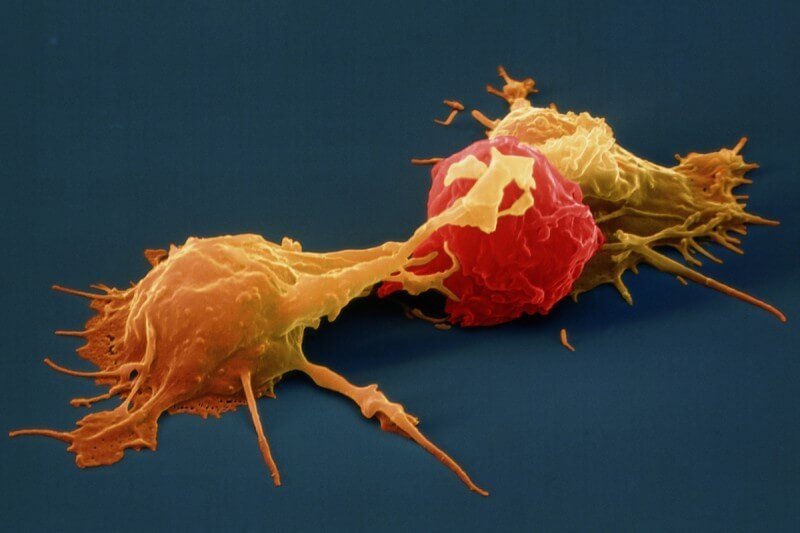
People infected with HIV have a substantially higher risk of some types of cancer compared with uninfected people of the same age. Three of these cancers are known as "acquired immunodeficiency syndrome (AIDS)-defining cancers" or "AIDS-defining malignancies": Kaposi sarcoma, non-Hodgkin lymphoma, and cervical cancer. A diagnosis of any one of these cancers marks the point at which HIV infection has progressed to AIDS. A compromised immune system can increase a person’s risk for cancer. It can also allow for cancer cells to spread faster than in someone without HIV. With the use of antiretroviral therapy (ART), the rates of AIDS-related cancers have dropped significantly. At the same time, people with HIV are at higher than average risk for several other cancers, including Hodgkin lymphoma and cancers of the anus, lung, liver, and skin, The number of cases of these other cancers is increasing in people with HIV.
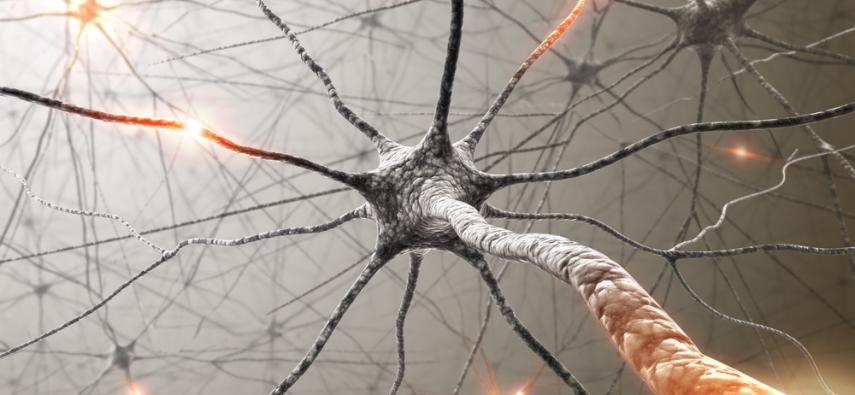
Neuroimmunology is a field combining neuroscience, the study of the nervous system, and immunology, the study of the immune system. Neuroimmunologists seek to better understand the interactions of these two complex systems during development, homeostasis, and response to injuries. A long-term goal of this rapidly developing research area is to further develop our understanding of the pathology of certain neurological diseases, some of which have no clear etiology. In doing so, neuroimmunology contributes to development of new pharmacological treatments for several neurological conditions. Many types of interactions involve both the nervous and immune systems including the physiological functioning of the two systems in health and disease, malfunction of either and or both systems that leads to disorders, and the physical, chemical, and environmental stressors that affect the two systems on a daily basis. We know, both nervous system and imuune system playes a major role in humans life. One as signal system and one as protective system.
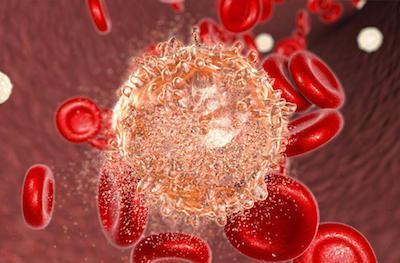
Our immune system protects us from diseases, including cancer. Normally our immune system spots and destroys faulty cells but sometimes these cells can escape detection and develop into tumours. Immunotherapy is a relatively new form of treatment that re-awakens the immune system so it can fight cancer. Engaging the immune system in this way might have long-lasting benefits, if the immune system can ‘remember’ the cancer and stop it coming back.
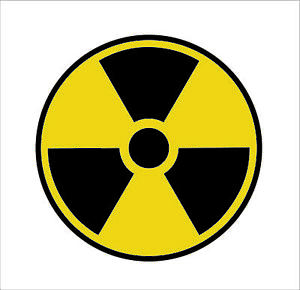
Radiation medical specialty is to embrace all aspects of analysis which influences the treatment of cancer using radiation. The sphere of radiation medical specialty covers the admixture of action therapy into multimodal treatment approaches. External beam radiation is delivered outside the body. This includes leading high-energy radiation beams at the area being targeted among the body victimization varied radiation machines. Brachytherapy is radiation applied directly into the target. It is extremely effective as the radiation is focused on the target diseased site instead of healthy closed organs. Radio immune therapy (RIT) uses protein with specificity for a growth- associated substance tagged with a radionuclide to deliver cytotoxic radiation to a tumor cell. General action therapy uses radioactive medication to treat cancer consistently, within which the radioactive substance travels through the blood stream to achieve cells inside the body.
Learn More
List of major Universities related to Oncoloyg in USA:
Stanford University| California | Duke University| North Carolina | University of Chicago| Chicago | Vanderbilt University| Tennessee | Georgetown University| Washington | University of Michigan-Ann Arbor| Michigan | University of Southern California| Los Angeles | Wake Forest University| North Carolina | University of Wisconsin-Madison| Wisconsin| Madison | University of Miami| Florida | University of the Sciences| Pennsylvania | University of Utah| Utah | University of Arizona| Arizona | University of Toledo| Ohio | Wayne State University| Michigan
List of major Universities related to Oncology in Europe:
Kingston University Life Sciences| England | University of Birmingham School of Life Sciences| England | Brunel University| London | Cardiff University| Wales || University of EdinburghScotland | Newcastle University Northern Northern Institute for Cancer Research| England | University of Bradford England | University of Bristol| England | University of Buckingham| England | University of Cambridge| England | University College Dublin| Republic of Ireland | Edge Hill University| England | Harper Adams University| England | University of Hull| England
List of major Universities related to Oncology in Asia:
University of Tokyo| Tokyo | National University of Singapore| Singapore | Kyoto University| Tokyo| University of Hong Kong| Hong Kong | Peking University| China | Seoul National University| South Korea | National Taiwan University| Taiwan| Osaka University| Japan | Tsinghua University| China | The Chinese University of Hong Kong| Hong Kong | Fudan University| China | Taipei Medical University| Taiwan | Mahidol University| Thailand | Tohoku University| Japan| Kyushu University| Japan | University Malaya| Malaysia | Indian Institute of Science| India | Nanjing University| China | University of Indonesia| Indonesia | University of the Philippines| Philippines
List of major Societies related to Oncology in USA:
American association of cancer research | American Board of Preventive Medicine (ABPM) | American College of Epidemiology | American Heart Association Council on Epidemiology and Prevention | American Public Health Association | American Society of Preventive Oncology | Association for Professionals in Infection Control Control and Epidemiology Inc.| American Statistical Association (ASA)| Section on Statistics in Epidemiology (SIE)| Association for Prevention Teaching and Research (APTR)| Canadian Society for Epidemiology and Biostatistics| Council of State and Territorial Epidemiologists (CSTE) | Health Monitoring Systems| Inc.| International Clinical Epidemiology Network (INCLEN)| International Epidemiological Association| International Society for Environmental Epidemiology (ISEE) | International Society for Pharmacoepidemiology| Netherlands Epidemiological Society| American Academy of Pediatrics| Section on Epidemiology| Society for Clinical Trials| Inc. | Society for Heathcare Epidemiology of America
List of major Societies related to Oncology in Europe:
European Oncology Nursing Society (EONS) |European Society for Medical Oncology (ESMO) | British Association for Cancer Research (BACR) | Association for international Cancer Research (AICR) | European School of Oncology (ESO) | International Epidemiological Association International Society for Environmental Epidemiology (ISEE) | International Society for Pharmaco epidemiology | SGMO Swiss Society for Medical Oncology
List of major Societies related to Oncology in Asia:
Chinese Society of Clinical Oncology | Association of Oncology Social Work (AOSW) | Association of Pediatric Hematology Oncology Nurses (APHON) | Association of Pediatric Oncology Social Work (APOSW) | Health Monitoring Systems, Inc. | International Clinical Epidemiology Network (INCLEN) | International Epidemiological Association | International Society for Environmental Epidemiology (ISEE) |http://immuno-oncology.euroscicon.com Association of Radiation Oncologists of India | Japanese Breast Cancer Society | Asian Cancer Foundation | Japan Lung Cancer Society | Cancer Relief Society Nepal
List of major Conferences related to Oncology in USA:
Oncology Conferences USA 2018;; Oncology Conferences Canada 2018; Oncology Conferences Japan 2018;; Cancer Conferences Japan 2018; International Cancer Imaging Conferences October 2-4 | Oncology Conference USA, 2018 | 8th International EMT Meeting, Texas, US | Cancer Epigenetics: New Mechanisms, New Therapies, Colorado, US | WCC-2017 World Cancer Conference, Chicago, US | Cancer Imaging and Therapy, Florida, US
List of major Conferences related to Oncology in Europe:
9thWorld Biomarkers Conferences December 07-08, 2017 Madrid, Spain | 12th World Hematology Conferences March 15-16, 2018 London, UK | 7th World Breast Cancer Conferences May 10-11, 2018 Frankfurt, Germany | 2nd International Epigenetics Conferences and Chromatin Conferences November 06-08, 2017 Frankfurt, Germany | 27thInternational Oncology research Conferences and Cancer Stem cells Conferences May 10-12, 2018 Frankfurt, Germany | International Oncology Conferences and Cancer Diagnosis Conferences August 28-30, 2017 Brussels, Belgium | Oncology Conferences Asia 2018 | 20thEurope Cancer Therapy Conferences and Radiation Oncology Conferences August 28-29, 2017 Brussels, Belgium | 25th World Cancer Conferences October 19-21, 2017 Rome, Italy | Global Cancer Therapy Conferences August 07-09, 2017 Frankfurt, Germany | In vivo model of metastasis Conferences November 27-29, 2017 Berlin, Germany | European Cancer Conferences September 7-9, 2018 Vienna, Austria | 9th European Urological Cancer Conferences November 16-19, 2017 Barcelona, Spain
List of major Conferences related to Cancer Sciences in Asia:
ESMO Summit Middle East, 2018 | ESMO Asia 2107 Congress, Singapore | Frontiers in Cancer Science 6-8th November 2017, Singapore | Indo-Oncology Summit-2018, India | Cold Spring Harbor Asia conference on Precision Cancer Biology | From Targeted to Immune Therapies, China | Asia Lung Cancer Summit in Hong Kong Targets Precision Medicine , Hong Kong | Frontiers in Cancer Science-2017, Singapore | 3rd Multidisciplinary Lung Cancer Coneference-2017, Singapore | 13th National Conference of the Asian Clinical Oncology Society, Thailand –
List of major Journals related to Oncology in USA:
Cancer Cell | Journal of Clinical Oncology | Journal of the National Cancer Institute | Clinical Cancer Research | Stem Cells | Cancer | Molecular Cancer Therapeutics | International Journal of Radial Oncology Biology Physics | Journal of the National Comprehensive Cancer Network | Advances in Cancer Research | Oncotarget | Journal of Cancer Survivorship | Cancer Prevention Research | Seminars in Oncology | Annals of Surgical Oncology | Seminars in Radiation oncology | Journals of Thoracic Oncology | Current Opinion in Oncology | Cancer Control | Cancer Cytopathology
List of major Journals related to Cancer Sciences in Europe:
Lancet Oncology | Drug Resistance Updates | Breast Cancer Research | European Journal of Cancer | Nature Reviews Clinical Oncology | British Journal of Cancer | Blood Reviews | Molecular Cancer | Endocrine-Related Cancer | Psycho-Oncology | Pigment Cell and Melanoma Research | Cancer Science | Environmental Carcinogenesis and Ecotoxicology Reviews | Journal of Hematology and Oncology
List of major Journals related to Oncology in Asia:
Asian Pacific Journal of Cancer Prevention | Asian Pacific Journal of Cancer Prevention | The Japanese Association of Medical Sciences | Angiogenesis in Multiple Myeloma: Implications in Myeloma Therapy | Lymphoma in Asia | Arsenates in the Treatment of Hematological Malignancies | Endoscopic Diagnosis and Treatment for Early Gastric Cancer | Asia Pacific Journal of Public Health | Liver Cancer
List of jobs related to Oncology :
Nanoscience Faculty | Postdoctoral Position | Tenure-track Assistant Professor | Assistant/Associate/Full Professor - Physiology and Biophysics | Postdoctoral Associate | Associate/Full Professor of Oral Biology | Postdoctoral Fellow in Cancer Biology | Environmental Epidemiologist | Assistant Professor Biology | Postdoctoral Research Fellow | Postdoctoral Fellow in cancer metabolism | Faculty Positions in Translational Sensory Neuroscience and Cancer | Postdoctoral Positions in Immunology | Cancer Immunologist & System biologist | Assistant Professor In Developmental Genetics | Research Technician | Principal Research Technician | Equipment Management Associate | Senior Research Tech | Senior Scientist | Animal Research Technician | Senior Research Funding Manager | Senior Medical Writer | Research Assistant | Molecular Field Applications Specialist | Lead Scientist – Immunochemistry | Senior Research Technician | Scientific Project Manager | Editorial Associate Director | Senior Biomedical Scientist: Molecular Profiling | Clinical Scientist/NGS Data Analyst | Field Application Scientist | Senior Cancer Analyst | Senior Translational Scientist | Clinical Laboratory Processing Technician | Principal Medical Writer | Product Manager | Product Support Scientist | Senior Quality Assurance Officer | Data Scientist – Bioinformatics | Research Scientist – Bioinformatics | Senior Principal Upstream Process Development Scientist | Senior Cancer Analyst | Cell Line Development Scientist | Associate Principal Scientist
Market Report
Immunology deals with the study of development, anatomy functions and malfunctions of the immune system, which are fundamental to understand the human disease. The immune system is made up of many types of molecules and cells that are distributed in every tissue of the body, as well as specialized lymphoid organs, which act in a coordinated manner to prevent microbial infections, to initiate repair of damaged tissues and to suppress the growth of tumors. The immune system normally recognizes and responds to foreign molecules or damaged self, but not healthy host cells and tissues. The innate system of immunity is on evolutionary terms, the older system that forms the first line of defence. It is non-specific and the resistance is static. This includes physical defences such as skin & epithelial surfaces, cilia, commensual flora, acidic gastric contents, fever and some others are biochemical defences such as acute phase reactants and complement, soluble - lysosyme, interferons, fibronectin. Cellular components include natural killer cells and RES phagocytes.
Scope and Importance:
According to the journal published by Biomed Central, rotavirus infection the leading cause of severe dehydrating diarrhea among children worldwide. Every year rotavirus infection causes an estimated 111 million diarrhea episodes leading to 2 million hospitalization cases and 400,000 deaths of children under 5 years. Out of all these 82% occur in children in the poorest countries of Asia and Africa. As per Centers for Disease Control and Prevention (CDC), chronic HBV affected almost 1.4 million of the US population in 2011 and acting as major public health challenge. In past couple of years outbreaks for different infections have deteriorated the situation. All these reports direct towards the increasing need for immunological diagnosis and treatment for infections across the world. Therefore the market for this infection immunology may grow with significant rate in near future. On the other hand high cost involved and limited reach of this technology may hinder the growth of the market.
However the growth of the market may be significant in emerging economies in Asia and Africa considering high incidence and prevalence rate for infections. This market can also be segmented according various categories of infections such as hepatitis viruses, retroviruses and other infections. The market has different classes of products used such as reagents, diagnostic kits, instruments and others.
Target Audience
- Immunology and Molecular Biology Students, Scientists
- Immunology and Biochemistry Researchers
- Immunology, Microbiology Faculty
- Young Researchers
- Medical Colleges, Hospitals
- Physicians/Consultants
- Geneticist, Bioinformatician
- Immunology, Cellular Biology Associations and Societies
- Business Entrepreneurs
- Training Institutes
- Manufacturing Medical Devices Companies
Precision Medicine Market size was over USD 39 billion in 2015, and is anticipated to grow at 10.5% CAGR from 2016 to 2023.
Europe precision medicine market size, by application, 2013 - 2023 (USD Million)
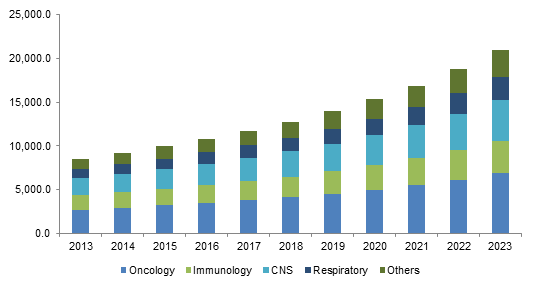
Statistics of Physicians, Researchers and Academicians working on Molecular Medicine and Immunology section.
Academia 35%
Researchers 35%
Physicians 25%
Others 5%
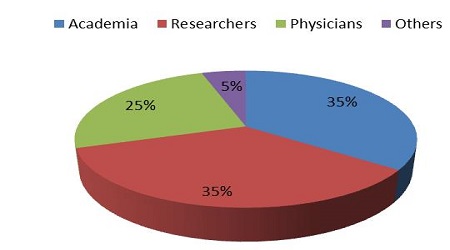
Immunology Drug Market: Overview
Development of some new drugs with success rate is expected to offer the good opportunity for immunology drug market. Wide-ranging scope of Immuno-oncology agents in different cancer treatments would provide the maximum share to immunology drug market in the forecast period. pharmaceutical companies and R&D are showing increased interest in this field and is expected to offer better potential for immunology drug market. Companies involved in partnership and R&D for efficient technologies are some of the latest trends that have been observed in immunology drug market. Currently, most of the immunology drugs are in clinical trial and are expected to rise the immunology market after clearance or success of these products from clinical trials.
Growth rate of Immunology research
A new report from business intelligence provider GBI Research - Global Immunology Market to 2022 - states that the global immunology treatment market is set to expand from the $61.5 billion in 2015 to an estimated $74.2 billion in 2022, despite the imminent expiry of a host of immunology treatments.
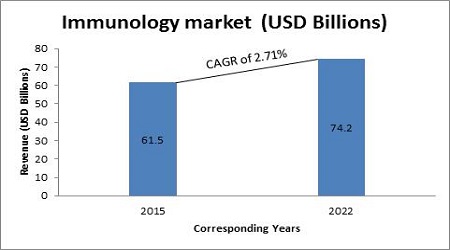
Immunology Drug Market: Key Market Participants
Currently various established companies in diagnostic and healthcare segment catering varied range of products such as reagents, test kits and instruments in this market out of which companies such as F. Hoffmann-La Roche Ltd., Abbott Laboratories, Shanghai Kehua Bio-engineering Co., Ltd, Trans Asia Bio-Medicals Ltd, Span Diagnostics Ltd, Thermo Fisher Scientific Inc., Bio-Rad Laboratories, Inc. are leading contributors in reagents and test kits, on the other hand Siemens Healthcare and PerkinElmer, Inc. are major companies in Instruments segment.
This research report analyzes this market on the basis of its market segments, major geographies, and current market trends. Geographies analyzed under this research report include
· North America
· Asia Pacific
· Europe
· Rest of the World
Major Hospitals in Europe
- Assistance Publique Hôpitaux de Paris
- University Clinic Heidelberg Universittsklinikum Heidelberg
- Erasmus Medisch Centrum Universitait Medisch Centrum Rotterdam
- Asklepios Klinikum Bad Abbach
- Leiden University Medical Center / Leids Universitair Medisch Centrum
- Centre Hospitalier Universitaire Vaudois Lausanne
- Hôpitaux Universitaires de Geneve
- Universitätsklinikum Hamburg Eppendorf
- Universitätsklinikum und Medizinische Fakultät Tübingen
- Sahlgrenska University Hospital
- Universitätsklinikum Freiburg
- Universitätsklinikum Jena Klinikum der Friedrich Schiller Universität
- Klinik und Poliklinik für Hals Nasen Ohrenheilkunde Ludwig Maximilians Universität München
- Instytut Psychiatrii i Neurologii
- Universitair Ziekenhuis Leuven
Top Global Immunology Universities
- Harvard University
- University of California--San Francisco
- Stanford University
- Yale University
- Johns Hopkins University
- Washington University in St. Louis
- Duke University
- University of Pennsylvania
- University of Texas Southwestern Medical Center-Dallas
Top Companies
- Actelion
- Agilent
- Alexion
- Amgen
- AstraZeneca
- Bayer
- Biogen
- BioMarin
- Bristol-Myers Squibb
- Celgene
- Daiichi Sankyo
- Gilead Sciences
- Glaxo Smith Kline
- Illumina
- Johnson & Johnson
- Merck
- Novartis
- Pfizer
- Regeneron
- Roche
- Sanofi Genzyme
- Takeda
- Vertex
